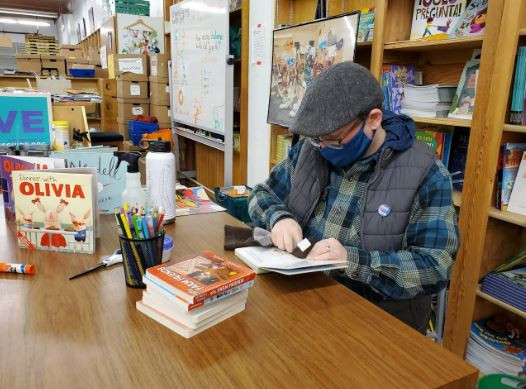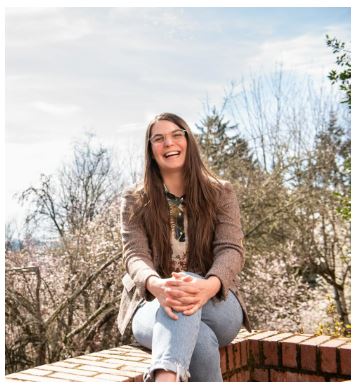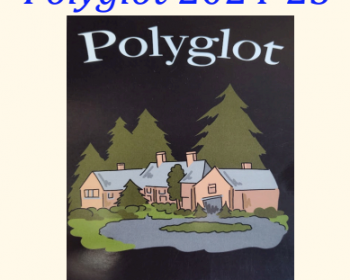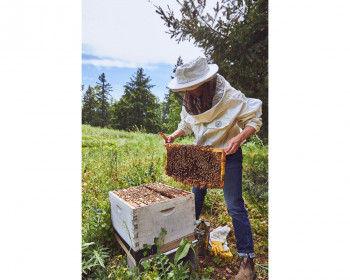Volunteer Work: Why is it special? When and Why do I include it?
At the Career Center on the Undergraduate Lewis & Clark College campus, we focus on helping students find jobs and internships on and off campus. In addition we hold one on one Drop-In hours led by Peer Career Advisors. Part of our goal is to find the best fit for our students and the program, internship, or job they will participate in for weeks, months, and years to come.
Open gallery

We stress the importance of having and speaking to previous experience that attains to the role at hand which the student is applying for. This experience can be past work and internship experiences or volunteer work. If a student does not have background experience related to their new found interest, we can help navigate other experiences to fit what the role is interested in seeing. The new found organization on campus, Center for Social Change and Community Involvement, has been an instrumental group on campus students can use to find volunteer work and more.
I had the opportunity to speak to the Director of the Center, Andrea Salyer, about her experience working in the Social Change and Community Involvement office. In addition to her thoughts on goal setting and importance of volunteer work and having previous experiences to add to a resume and cover letter towards applying for jobs and internships.

Andrea Salyer (She/Her/Hers)
Hometown: Rhododendron, OR
BA: University of Oregon, Humanities, 2011
Major: Humanities/Student Affairs
MA: Student Affairs, Lewis & Clark Graduate School of Education and Counseling
Three words that describe Center for Social Change and Community Involvement:
Community Involvement, Transformative Leadership, Social Justice
Three words would you use to describe Lewis & Clark: tight knit, beautiful, potential for growth
Q: How did “Center for Social Change and Community Involvement” develop on Lewis & Clark College campus?
A: The Center developed from a visionary group of Lewis & Clark leaders, including our current President, Dr. Robin Holmes-Sullivan. The goal was to reimagine the Student Leadership & Service Office to root itself in Social Change, Community Involvement, and Leadership Development. There was a group of leaders convened to envision what that could look like, and in Fall of 2021-The Center was born in its current form.
Q: What role does the Center for Social Change and Community Involvement play in volunteer work for college students at Lewis & Clark College?
A: The Center for Social Change helps connect students to volunteer opportunities. We work with a variety of community organizations across town focusing on important social issues impacting our city. We help students become socially responsible volunteers, rooted in reciprocity and deep connection. We also help with logistical issues like transportation, providing Lyft codes so it’s easier to get to your volunteer shift (we know getting off this hill can be a challenge). Ultimately, we want students to get more connected to the city they’re in, and recognize that regular service to your community makes you more a part of it. We have a Social Impact Certification students can earn through regular service and leadership development with our office. Lastly, our Alternative Breaks program promotes service locally and globally and our Social Impact Grants offer funds for students doing incredible social justice work in their communities.
Q: How important is having or creating goals for tasks while in a volunteer work setting?
A: It’s critical. If you go into a volunteer situation without understanding why you want to be there, you risk having a less impactful experience and more importantly, you won’t be as valuable to the community you are working in. Something we stress at the Center is the importance of “Critical Service Learning” where you reflect on the systems that create inequity in our communities, your role in redistributing power, and how you can be in service and also in community ethically. We are trying to move away from the culture that rewards transactional types of service relationships, and instead focuses on deepening Lewis & Clark’s connection to Portland through ongoing, reciprocal relationships that center social change.
Q: How important is having previous volunteer or work experience before applying for a job?
A: I think it depends on the job. But as someone who has sat on a lot of hiring committees for different types of jobs, I look for their volunteer experience because that lets me know what they are passionate about, and that serving their community is an important part of their mindset, which is definitely a plus!
Q: As an academic institution, how can Lewis & Clark College give back to all students in need? (i.e. students of any academic background and any age)
A: This is a really big question. Lewis and Clark has a lot of students in need, despite what the narrative might be around a private liberal arts college having money and resources-we know students are struggling here. Everything from struggling with basic needs like food and housing insecurity to being a BIPOC student trying to fit within the structures and educational models of a predominantly white institution. I think acknowledging problems exist is a good first step, and then prioritizing those problems with resources. With limited resources, the best thing LC can do is prioritize the needs of those most marginalized by our institution and work forward from there to address them.
It is important to find internship, job, and volunteer opportunities that allow room for growth and inspiration. The Career Center and Center for Social Change and Community Involvement provide a unique and safe space to do just so!

River Donehey (they/them/theirs)
Hometown: Phoenix, AZ
Three words that describe Children’s Book Bank warehouse: Community, Literacy, Advocacy
One volunteer opportunity that has worked with Lewis & Clark College students, with a focus on academic and interpersonal growth, is SMART Reading through their Children’s Book Bank. After having volunteer with this organization, I had the opportunity to speak with the Volunteer and Book Flow Assistant, River Donehey about their role, the community behind and within the organization, the importance of volunteer work, and how wanting to make a positive change / difference can lead to great joy, internship, and volunteer experiences.
Q: What is SMART reading? Who founded the organization?
A: SMART Reading is a statewide organization that pairs trained adult volunteers with early elementary school children for one on one reading time every week during the school year. Over the course of the year, the child gets to choose 14 books out of the SMART collection to keep for themselves. Due to changing needs during the pandemic, some SMART sites have switched to a virtual read-aloud where a volunteer will read to an entire class rather than having one on one time. SMART was founded in 1991 by a group of business leaders who were concerned about the below-grade level reading of Oregon students.
Q: What is The Children’s Book Bank?
A: The Children’s Book Bank at SMART Reading is an organization where the public can donate new and gently used children’s and young adult books. Volunteers then sign up for sessions to clean and restore the donated books. Restored books are then bundled together and redistributed to every Multnomah County Head Start and Early Head Start student, as well as to many local elementary schools. Additionally, we redistribute more heavily used books to local literacy partners.
Q: What is your role within SMART reading / Book Bank?
A: My title is Volunteer and Book Flow Assistant. I’m responsible for the life cycle of each book as it passes through the warehouse from the time it is donated to the time it is delivered. I also lead the volunteer restoration sessions with the rest of our volunteer team. Finding and maintaining partnerships with local literacy organizations is also under my purview.
Q: What made you interested in being part of SMART reading / Book Bank?
A: I’ve managed multiple bookstores over the years and have been a collectible book restoration specialist more recently. Children’s books have always been my favorite to engage with due to my love of books as a youth as well as the fluid nature of the subject. To me, the best part of The Children’s Book Bank is our Story Like Mine Collection. We have curated a joy-based collection of age appropriate books that feature exclusively protagonists of marginalized identities. Each of our book bundles given to the Head Start and Early Head Start students is built specifically for the child receiving it. A kiddo who is Black with two moms, Korean and autistic, or like me, trans and Latinx, can see heroes of stories who look like themselves and their families.
Q: How do your beliefs of giving back to communities in need affect the goals within SMART reading / Book Bank as an organization?
A: Our entire model is based on the values of equity in education and literacy. It has been shown time and again that if children don’t have access to books when they are at the pre-K and Kindergarten level, their entire education and access to high quality careers is severely restricted. By redistributing our book bundles to students who may not have book access outside of school, we are hoping to increase the likelihood of lifelong literacy.
Q: In what ways can college students looking for jobs or internships turn to SMART reading / Book Bank for opportunities?
A: The Children’s Book Bank hosts approximately twelve, two hour, volunteer sessions per week with many of them hosted through handsonportland.org. We have regular volunteer opportunities as well, where people can come in at a set time week after week to help with more training intensive tasks, such as vetting our books for harmful or inclusive content. We do occasionally have internships available and I’ve seen more than one job offer made during a volunteer session between participants who hit it off! Regular volunteerism in an area you are passionate about is one of the best ways to gain experience before you have traditional employment.
Q: How can college students and other people alike support SMART reading / Book Bank as an organization?
A: There are a number of ways to support The Children’s Book Bank and SMART Reading.
- Volunteer at CBB! Sign up through handsonportland.com to join a book restoration session. If you’d like to volunteer as a group, email me at rdonehey@smartreading.org and we can set up a private group session. After joining a few sessions, you can become a Steward and get trained on more advanced tasks to do weekly either in our warehouse, or from an off-site location.
- Volunteer to become a SMART Reader. Sign up at smartreading.org to read books to kiddos one on one throughout the school year.
- Donate books, host a book drive, or donate money to help us buy inclusive books to distribute. All the information is on our website at smartreading.org/bookbank.
- Spread the word! We’re always looking for more books, more volunteers, and more partners to redistribute books to.
Both Salyer and Donehey found that having a personal connection and investment towards the role students and other volunteers have while working, makes for unique experiences.
Given the question, “What do you like most about working within the student (i.e., elementary, middle school, high school, and college students) community?”
Salyer stated: I like getting to know the students. I like working with students to make transformative things happen. It is a gift to be in a community where you are always a student and a teacher; I wish more professions allowed for that, but working in higher ed-for me there is just nothing more empowering or interesting than growing alongside the people around you.
Donehey stated: I get the most joy out of my work when I have students in my volunteer sessions or get to work with them as interns or Stewards. It honestly gives me so much hope to see how far things have come since I was young. Distributing books with characters whose identities match our communities feels so necessary and I’m thankful it is such a big part of our programming. Not only are there more books with non white, queer, disabled, neurodivergent characters, but more students are able to exist as their authentic selves now. We share pronouns at the beginning of each volunteer session for anyone who feels comfortable doing so. Getting to hear all the trans and non-binary kids and their parents as well as the cisgender folks normalize all pronouns is not something baby me ever could have imagined having in my place of business. Seeing our student volunteers and knowing where our books are going makes my work worthwhile.
In the end, as a student I believe including previous work experience and volunteer experiences can help employers understand not only the type of work a student is interested in, but the person and personality behind the individual applying for the role. The level and degree of work within the role a student holds, can show varying degrees of commitment towards positive change and action students are willing to give and commit. Special thanks to both Andrea Sayler and River Donehey for the information and community aid they provide to and for students.
Kaya Tsabari’ 24
Peer Career Advisor
More Career Center Stories
Career Center is located in room 270 of Fowler Student Center on the Undergraduate Campus.
MSC: 175
email careers@lclark.edu
voice 503-768-7114
Director Rocky Campbell
Career Center
Lewis & Clark
615 S. Palatine Hill Road MSC 175
Portland OR 97219

